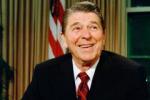In a post earlier today, Steve discussed a poll that finds 62 percent of Americans saying they have political opinions they are afraid to share out of fear of giving offense or losing their jobs. This finding raises potential problems for pollsters.
I say “potential” because we don’t know whether, or to what extent, the fear of expressing political opinions extends to conversations with pollsters. No one risks losing a job by telling a pollster he or she intends to vote for a particular candidate. Nor is it likely that anywhere close to 62 percent of the public worries about giving offense to a pollster. Finally, the fact that people have some views they are afraid to express doesn’t mean that they are afraid honestly to say whom they intend to vote for.
It is likely, though, that some members of the public are reluctant to be honest with pollsters about how they intend to vote. Indeed, there is speculation that some people who planned to vote for Donald Trump in 2016 did not state this intention when polled.
Any such reluctance has likely increased in the past four years, given the “cancel culture” and other efforts to demonize and ostracize conservatives. In fact, the poll finds an increase in fear of expression since 2017, though the greatest increase was found among “strong liberals.”
Between members of the public who don’t want to talk to pollsters, or whom pollsters can’t reach, and members who may be reluctant to talk honestly to them, we may need to take polls of the presidential race, at a minimum, with more grains of salt than usual.






